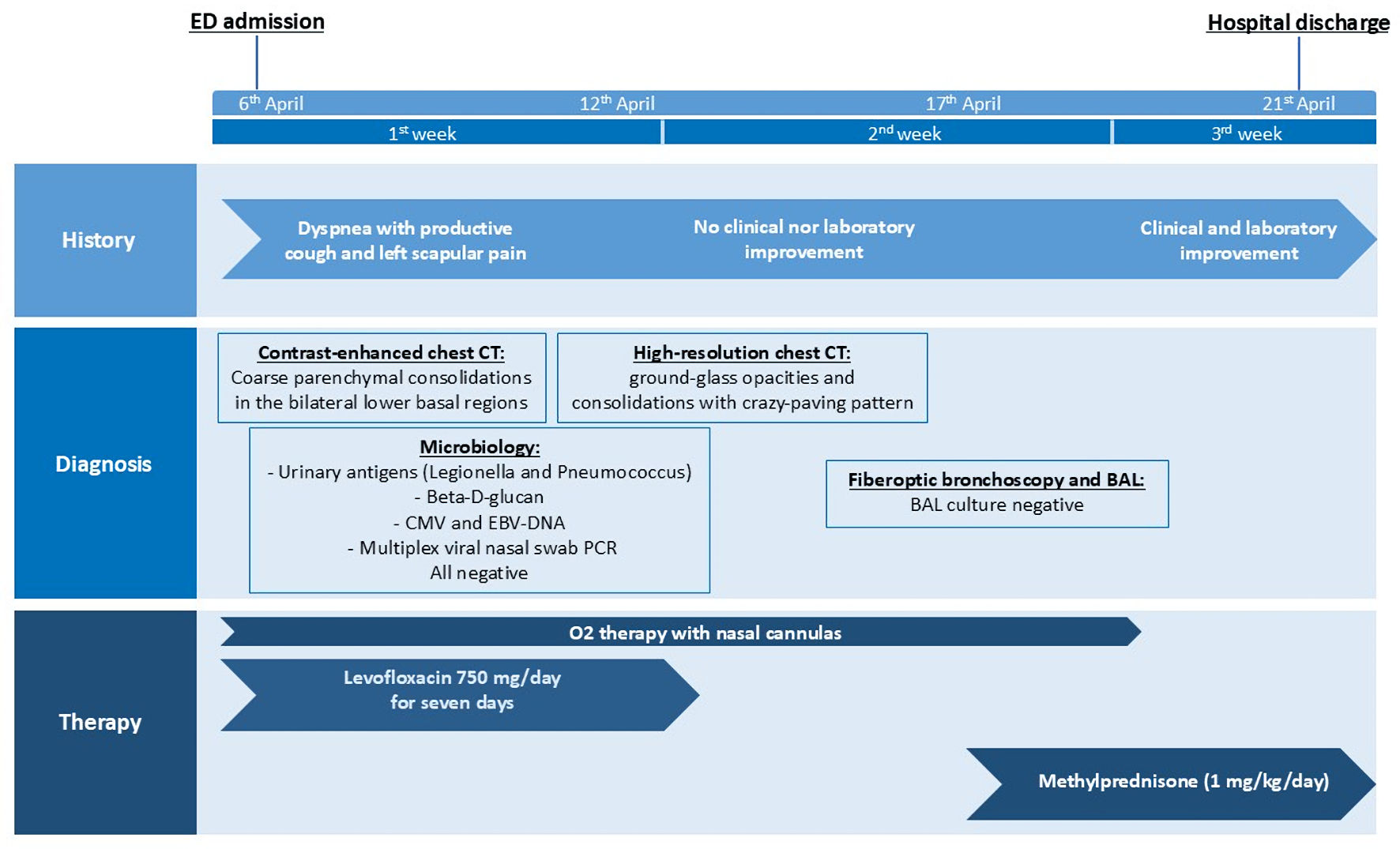A Challenging Case of Immune-Related Organizing Pneumonitis Following Programmed Cell Death 1 Inhibitor Therapy in Non-Small Cell Lung Cancer
DOI:
https://doi.org/10.14740/jocmr6255Keywords:
Pneumonitis, Pembrolizumab, Immune checkpoint inhibitors, Tumor immunology, Cancer treatmentAbstract
The immune system plays a vital role in defending the body against infections and tumors, inspiring the development of innovative therapies like immune checkpoint inhibitors (ICIs) that have transformed the treatment of advanced cancers. Pembrolizumab, a monoclonal antibody targeting the programmed cell death 1 (PD-1) receptor, is a powerful ICI effective against various malignancies but frequently associated with immune-related adverse events (irAEs). In this report, we present a case of organizing pneumonitis that developed 3 months after initiation of pembrolizumab treatment for non-small cell lung cancer (NSCLC). A 64-year-old woman with NSCLC, undergoing maintenance therapy with pembrolizumab, presented with multiple lung consolidations. Her medical history included thalassemia minor, a pre-pyloric ulcer, hiatal hernia, and a history of smoking. Extensive microbiological testing, including bronchoalveolar lavage, was negative, and her condition did not improve with broad-spectrum antibiotics. This led to a suspected diagnosis of pembrolizumab-induced pneumonitis. Treatment with high-dose corticosteroids resulted in full clinical and radiological resolution. This case underscores the importance of monitoring for irAEs during ICI therapy, as differential diagnosis between immunotherapy-induced organizing pneumonia and tumor progression is challenging in patients with advanced lung cancer.

Published
Issue
Section
License
Copyright (c) 2025 The authors

This work is licensed under a Creative Commons Attribution-NonCommercial 4.0 International License.








